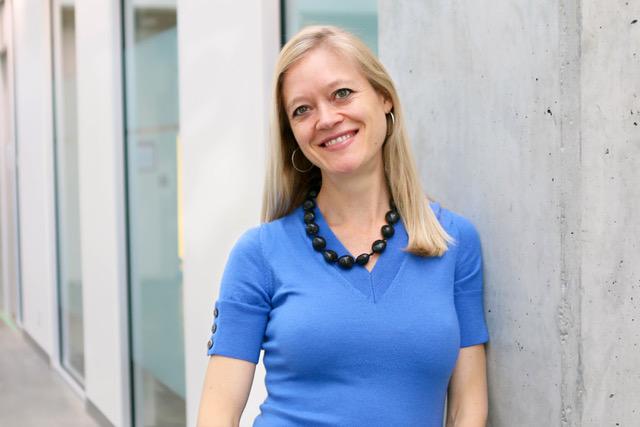VIU professor receives federal government grant to aid in the development of an innovative psychedelic medicine-assisted therapy program for the treatment of mental health issues experienced by first responders.
A Vancouver Island University (VIU) Nursing professor developing a psychedelic medicine-assisted therapy and resilience training program has received a sizeable federal government grant.
Dr. Shannon Dames has been awarded a $50,000 Canadian Institutes of Health Research (CIHR) Knowledge Synthesis grant to support her research, which aims to help health-care providers suffering from Post-Traumatic Stress Disorder (PTSD) and/or treatment-resistant mental health issues related to depression.
The CIHR grant is part of the government’s rapid research response to COVID-19 and is aimed at addressing and improving mental health outcomes during the pandemic response and beyond.
By age 40, 50% of the population will have or have had a mental illness, according to the Canadian Mental Health Association. Dames says health-care professionals are at greater risk of experiencing psychological stress due to their trauma-laden careers.
“Rates of depression and PTSD were already high amongst front-line caregivers and international trends are showing us that the COVID-19 pandemic is contributing to widespread emotional distress for those on the front lines,” she says.
Dames is working with a multi-disciplinary team of health professionals, including the BC SUPPORT Unit Vancouver Island Centre, an initiative that supports patient-oriented research in the region, researchers from VIU, the University of Victoria (UVic), the University of British Columbia (UBC) and Numinus Wellness Inc. to develop what could be the first of its kind in Canada ‒ a publicly offered platform that combines resilience development programming with Ketamine-assisted therapy. Ketamine is commonly used by health-care professionals in a variety of medical settings, including for the treatment of depression. It is also currently the only legal medicine that produces psychedelic effects.
The current project’s foundation is a resilience-building program called Roots to Thrive, co-created by Dames with contributions from numerous academics and health professionals. The evidence-informed communities of practice program aims to enhance mindfulness and self-compassion to reduce stress and has resulted in significant positive wellness impacts for participants. Psychedelic-assisted psychotherapy is integrated into the program as a tool to address barriers, relax defenses and facilitate insight.
“Psychedelics like psilocybin, also known as magic mushrooms, stimulate serotonin in the brain, which contributes to feelings of well-being and happiness,” says Dames. “They all promote non-attachment, which is the ability to recognize old belief systems and uncomfortable emotions as short-lived messengers, rather than as deep-seated threats. Administered in a supportive, therapeutic environment, it helps cultivate the self-compassion necessary to heal old wounds and work through current fears.”
With a $30,000 grant from a private philanthropist, matching funds from VIU’s Regional Initiatives Fund, and the CIHR operating grant, the research team is developing a program to deliver this innovative treatment to health-care providers suffering from PTSD and treatment-resistant mental health issues related to depression, anxiety, trauma and emotional exhaustion.
The team hopes to build capacity and infrastructure within the BC Health Authority system for the program and once established it will be expanded to include people beyond first responders.
Dr. Wei Yi Song, a Vancouver Island-based Physician/Psychiatrist, says Ketamine infusion therapy has shown promising results for difficult to treat depression.
“However, this type of treatment requires critical care medical practitioners limiting its accessibility,” he says. “Aninnovative, effective treatment strategy that can be implemented outside hospital/acute care centres would improve access to this type of remedy for those who need it most.”
VIU Psychology Professor Dr. Lindsay McCunn is also involved in the research. She says the project is an opportunity to use the applied and interdisciplinary body of environmental psychology literature in the development of a psychedelic-assisted therapy program and also examine some of the interactions between social and psychological factors of working in high-stress jobs on the front lines of the public health sector.
“As an environmental psychologist, I study how individuals are psychologically affected by architectural features in places such as offices and hospital settings,” explains McCunn. “Exposure to nature is critical to human health and this project will allow me to study how people respond to an innovative form of therapy and to what extent certain aspects of the physical environment of a treatment facility as well as its surrounding natural features have an impact on them.”
-30-
MEDIA CONTACT:
Annette Lucas, Communications Officer, Vancouver Island University
C: 250.618.7296 | E: Communications@viu.ca





